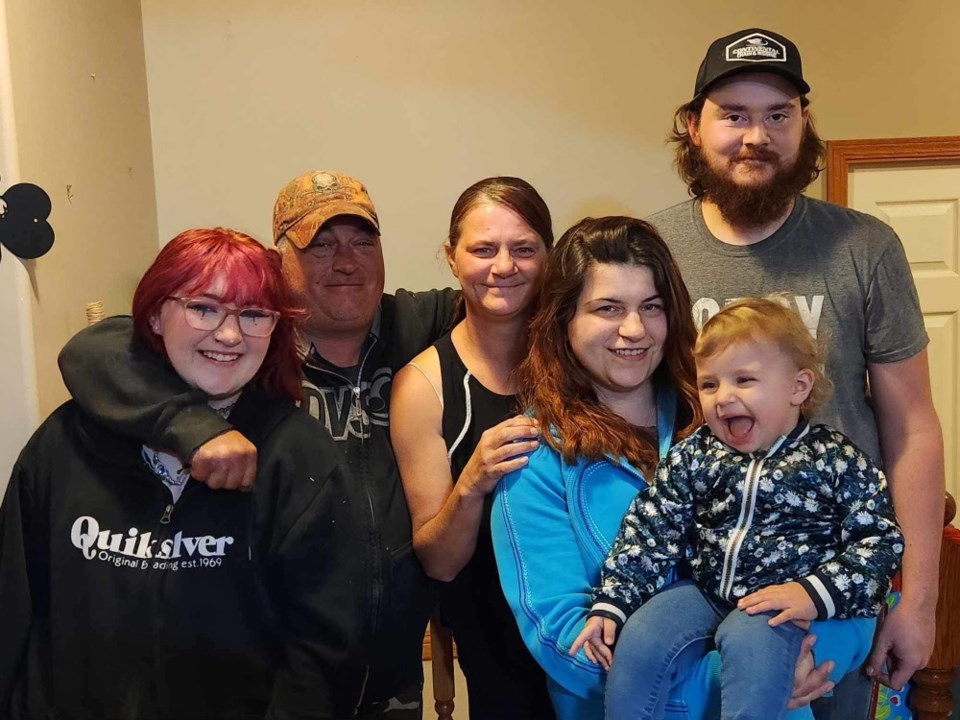BONNYVILLE – When Michelle Lenton was diagnosed with breast cancer, she was not within the recommended age category for a mammogram.
However, her age did not prevent cancerous cells from growing in the lymph nodes of her left breast.
In the province of Alberta, regular mammograms for those between 40-44 years old are not recommended and require a referral from a doctor, according to My Health Alberta, a resource guide from Alberta Health Services (AHS) and partner organizations.
Diagnosed with triple negative breast cancer in June of 2020, Lenton, who is now 47, is grateful to say she is in remission. But, if Lenton had not advocated for a mammogram and instead waited until she was 45 to receive her first mammogram, the outcome could have been very different.
“I was having these really weird, almost burning shooting pains in my left breast,” said Lenton. Initially, she believed the pain could be connected to her menstrual cycle – so she tried to wait it out.
After three months, the pain persisted.
“It kept going and going. So, I finally went to the doctor... They give you that whole song and dance about not being over 50. I had to really advocate for myself to get the mammogram,” she said, looking back.
At the walk-in clinic, Lenton would not take no for an answer. She had lost too many family members to breast cancer, including her grandmother, numerous aunts and her mother who passed away from the disease only a year before.
With Lenton’s family history, her doctor agreed to sign off on her first mammogram despite her age. She had her mammogram in Cold Lake and then was sent to the City of Edmonton for a biopsy and an ultrasound.
“I knew there was something wrong. What was scary and intimidating was actually going for a biopsy and waiting for results,” reflected Lenton.
“It was the longest nine days of my life. And then my family doctor called me at five o'clock on a Sunday and said, ‘Michelle, did anyone give you your results?’ I said ‘No, and I've been waiting’.”
Sitting at home with her husband on a Sunday evening, Lenton learned that she was bordering Stage 2 triple negative breast cancer – one of the most aggressive and deadliest breast cancers.
“I thought it was just a cyst or something. Never in my wildest dreams did I think I had cancer,” said Lenton. “I cried a lot. My husband, he didn't cry in front of me, but he probably cried when I left the room.”
Lenton was sent back to the city for a week of testing, which included measuring her bone density and going for PET scans. During that time, she stayed at Sorrentino's Compassion House. A place dedicated to supporting women diagnosed with cancer.
But Lenton also faced additional challenges during her journey with breast cancer. While navigating cancer treatment, she was trying to cope with the realities of a global pandemic.
“I had to go through a lot of it alone, surgery and chemotherapy – it was a struggle,” she said. Through the process her relationships also began to change.
“I gained a lot of perspective on how people react to a cancer diagnosis. Some people get scared, they don't know what to say. Yet so many people that I didn't expect to be there for me, were there for me and the ones I did expect weren't.”
Without those strong support systems around her, Lenton said she may not have fared as well as she did.
Now, Lenton marks three years since her mastectomy and is just two years away from using the term cured instead of “in remission.” It’s a day she very much looks forward to.
Life is slowly starting to return to normal. Lenton returned to her position at the Bonnyville hospital in July but acknowledged that the aftercare is just as important as the initial care.
“You constantly fear that it is going to return. Do I have to go through this again? Will I survive the next time?” she questions. “It took a bit to get me to the point where it wasn’t on my mind every day anymore.”
Through the good times and the bad times, Lenton was able to find more support than she could have imagined from her oncology team, surgeon and the staff at the Bonnyville Cancer Clinic and the Cross Cancer Institute. “I didn't have to beg or ask for it. It was just offered to me.”
An advocate
Reflecting on her own experience, Lenton says she wants women to know that it is OK to stand up for their health.
“I think women need to be taken more seriously because they know their own body. You don't need a male doctor or a female doctor telling you, you're not old enough, you don't have the family history,” she said.
“If a woman just says something doesn't feel right, then that should be enough to look into it because cancer is not an over 50 disease. Cancer could hit anyone at any time.”
While focusing on her health and that which is within her control, Lenton also makes sure that she is on top schedulling regular mammograms for her remaining breast.



